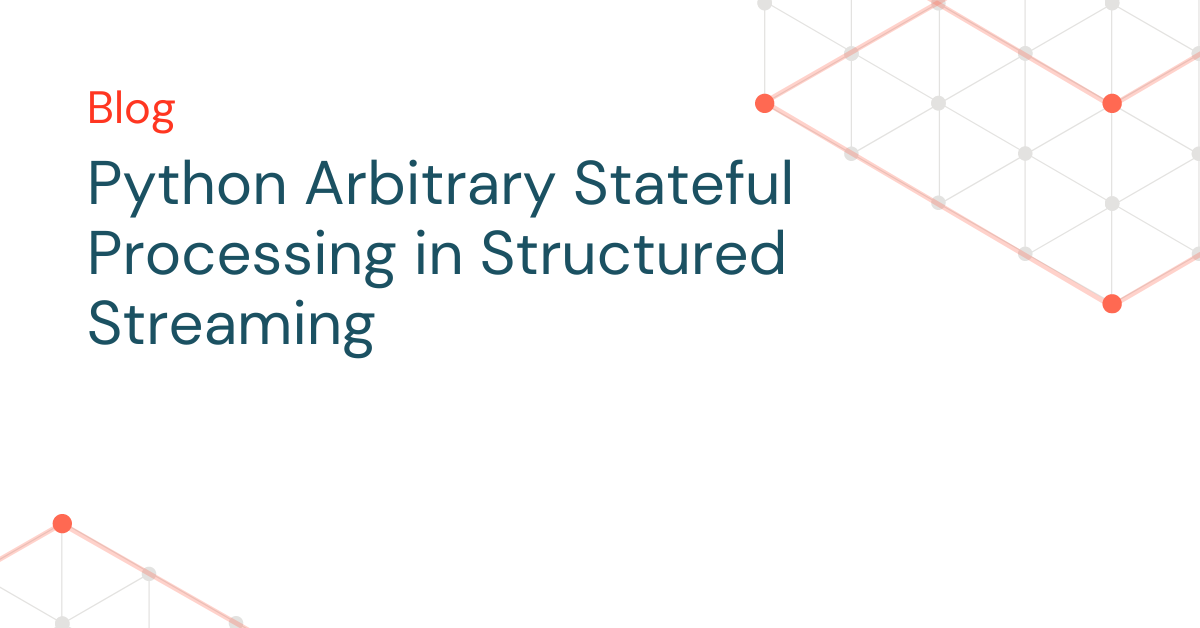Skip to main content![Hyukjin Kwon]()
![Python Arbitrary Stateful Processing in Structured Streaming]()

Hyukjin Kwon
Hyukjin Kwon's posts

Data Engineering
October 18, 2022/6 min read
Python Arbitrary Stateful Processing in Structured Streaming
Showing 1 - 12 of 20 results
Data Engineering
October 18, 2022/6 min read
Showing 1 - 12 of 20 results